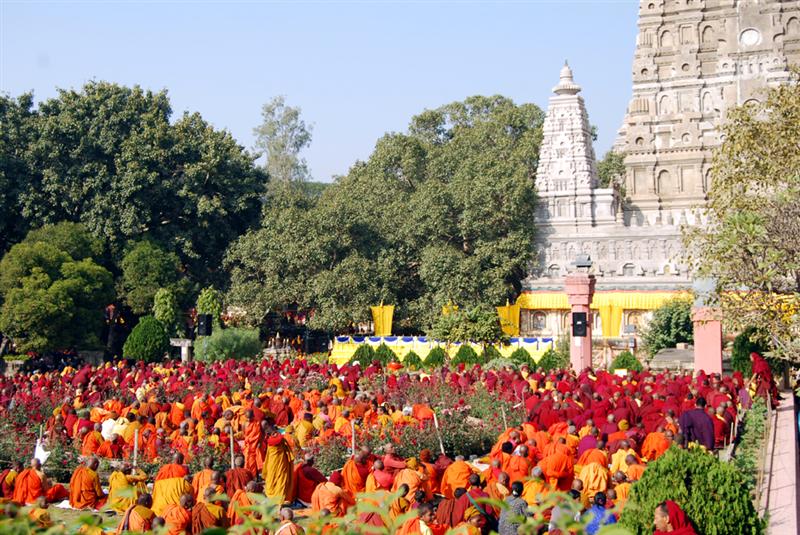As a practising Catholic, I find the usual take on Buddhism an incredible bore. The prevalent North American fantasy about Buddhism portrays it as fundamentally non-violent, always obtaining funds from honest sources, with leaders who are "the real deal." It's like there is this giant blind spot when dealing with Buddhism, while the hairy eyeball always turns to Catholicism and other Christian denominations. Christians are money launderers, perverts, and worldly hypocrites who pray for their sons and daughters to be unhappy at Buddhist retreats so they will come home and have a "normal" life of comfort.
I'm sure you have encountered this pro-Buddhist bias many times. It's so tedious. Having said that, Buddhism does have some interesting ideas from a psychoanalytic and, yes, spiritual viewpoint. Its exclusion of God as our creator and path to salvation would never make me happy, but I still have some interest in different faith groups, so I continue to write about Buddhism and other beliefs. Repression is not my thing. Choosing with all of the available info is.
—MC
In Buddhism, dukkha (Pali = suffering, ill, evil, unsatisfactory) is a foundational concept, representing the inherent sorrow and dissatisfaction arising from our bondage to maya (illusion). As the first of the Four Noble Truths, dukkha encompasses not only overt physical and mental suffering, such as pain and grief, but also subtler forms of unease and dissatisfaction. |
| Tibetan Buddhists celebrate Monlam in Bodhgaya, India, December 2007 |
A crucial aspect of dukkha is its recognition of the impermanence of happiness. Even experiences of joy and pleasure are considered dukkha because they are subject to change and eventual cessation. For Buddhists, the inevitable loss of worldly happiness inevitably begets unhappiness, highlighting the inherent instability of conditioned experiences.
By way of contrast, most Buddhists would argue that the allegedly 'supreme bliss' attained from Nirvana is considered permanent, representing a state beyond the fluctuating nature of samsara (the cycle of birth, death, and rebirth). Nirvana is understood as the cessation of dukkha.
It's important to remember, however, that the nature of Nirvana is a complex and nuanced topic within Buddhist philosophy. It's often described as transcending conventional descriptions of "permanence" or "impermanence" because it exists beyond ordinary conceptual frameworks. Buddhist texts emphasize that Nirvana is "unconditioned" (asankhata), meaning it's not produced by causes and conditions like the phenomena of samsara, placing it outside the realm of things that arise and cease.
Different Buddhist schools of thought hold varying perspectives on Nirvana. Some emphasize its transcendent nature, while others focus on its practical realization in this very life. The Madhyamaka school, for example, highlights the concept of emptiness (shunyata), which suggests that all phenomena, including Nirvana, are empty of inherent existence. This further complicates the application of terms like "permanent."
Furthermore, Buddhist philosophy generally advocates for the Middle Way, avoiding extremes of affirmation and negation. Therefore, definitively stating Nirvana as either "permanent" or "impermanent" can be seen as falling into those extremes. Ultimately, Nirvana's nature is understood to exist beyond our ordinary linguistic and conceptual limitations.
The question is, how many Buddhists can see their religion as a belief instead of an indisputable truth?
Related » Eightfold Path

Comments